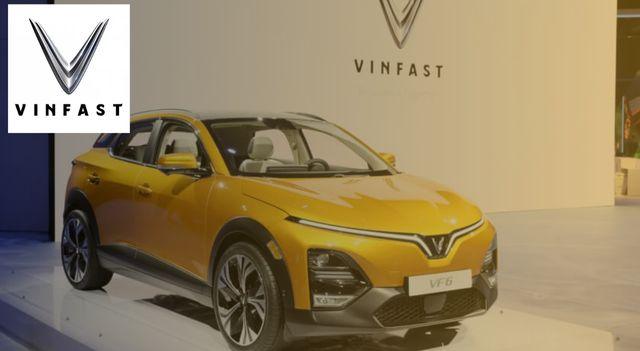Vietnamese electric vehicle manufacturer Vinfast’s (NASDAQ:VFS) shares surged another 30% in pre-market trading on Wall Street on Monday, extending a recovery from the previous week that more than quadrupled its market value to $160 billion.
The company made an impressive debut on Wall Street earlier this month, and its valuation quickly rose to become the world’s third most valuable automaker, trailing only Tesla and Toyota. However, the limited number of Vinfast shares available to the public made the stock prone to volatility, with fluctuations of 14% or more in 11 out of the last 12 sessions. If today’s increase holds, the market capitalization could increase by $50 billion.
This could pose a threat to Toyota. Mercedes, Stellantis, Ford, General Motors, and Ferrari have already been affected.
Stock Options: New to INVESTORSHUB
50,000 vehicles sold this year?
Vinfast is nearly entirely controlled by Pham Nhat Vuong, the richest man in Vietnam and founder of the parent conglomerate Vingroup, holding about 99.7% ownership. Despite the market enthusiasm, there is still a long way to go before Vinfast can meaningfully compete with Tesla and traditional car manufacturers who are investing billions of dollars to capture a share of the electric vehicle market. Only 137 Vinfast EVs were registered in the US until June, according to S&P Global Mobility.
The company is making launches in the US and Europe at a delicate time for electric vehicles, marked by the price war waged by Tesla. Vinfast hopes to sell up to 50,000 electric vehicles this year, while the Californian company plans to deliver 1.8 million cars. To boost sales, Vinfast is moving away from Tesla’s direct-to-consumer approach and turning to dealerships. Haven’t we seen this before? The company is also building a $4 billion factory in North Carolina. Undoubtedly, there’s a lot of hype around Vinfast, but it will have to deliver quickly if the market suddenly wakes up from its speculative frenzy.
Surprise IPO
VinFast, Vietnam’s leading electric car manufacturer, left the market astounded after debuting on Nasdaq with a rise of over 250%, catapulting its valuation to $85 billion.
The debut took place in mid-August, and for a day, the company was worth nearly as much as GM and Volkswagen combined. (Both automakers are worth about $47 billion each.)
VinFast went public through a merger with the SPAC Black Spade, valuing the company at $23 billion. The automaker is part of the Vingroup conglomerate, controlled by entrepreneur Pham Nhat Vuong, primarily operating in the technology and industry sectors.
The company is still in its infancy, having produced only 19,000 vehicles in the first half of this year. In the United States, where it recently entered the market, the company imported only 2,100 vehicles; in Canada, just 800.
But VinFast’s plans are ambitious.
To compete with major American brands, the company is building a $4 billion factory in North Carolina. The plant is expected to start operating in 2025 with an annual production capacity of 150,000 electric cars.
VinFast CEO Lê Thị Thu Thủy told CNBC, “With the North Carolina plant, we hope to significantly reduce costs and offer our products at a more affordable price for American consumers.”
Currently, VinFast cars are priced in line with Tesla’s, which already has a much more recognized and respected brand among Americans. VinFast’s five-seat VF-8 starts at $46,000, compared to Tesla’s Model Y at $47,700.
Lê mentioned that the company always prices its products competitively, “but when you look deeply into our products, they are packed with more features and more technology. So I think consumers will start to recognize the value we bring.”
Since its founding, VinFast has received billions of dollars in investments from Vingroup and Vuong, who has always made it clear that his goal with VinFast is to compete head-to-head with major players in the industry, such as Tesla and BYD. In a June filing, the company stated that it had received $9.3 billion in investments in recent years.
In April alone, the company raised $2.5 billion in equity, including $1 billion that Vuong invested from his own fortune.
